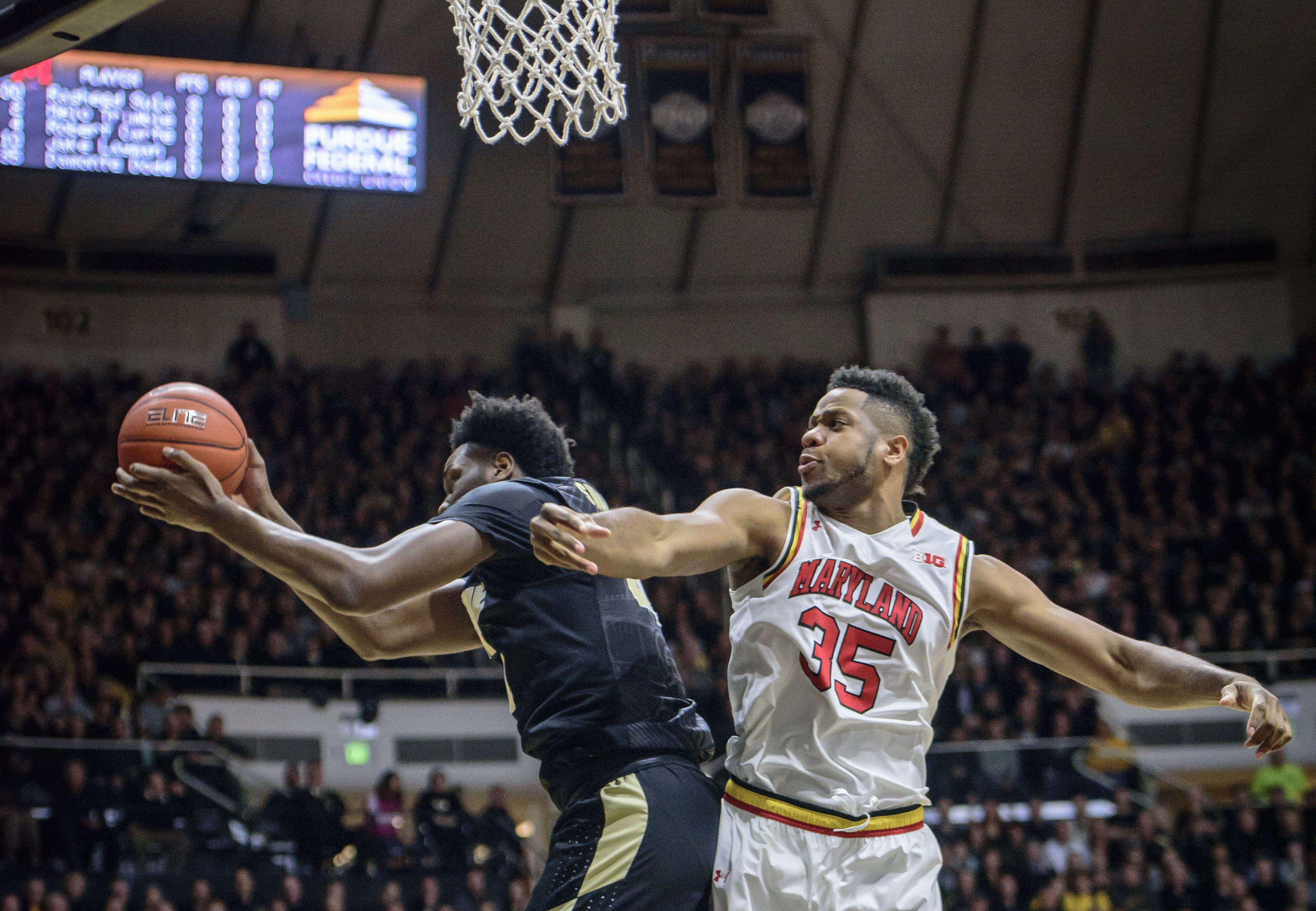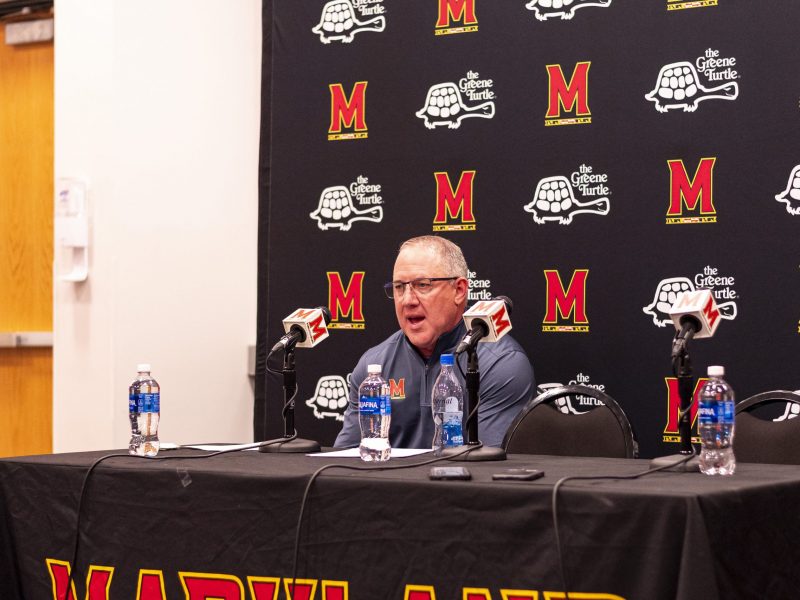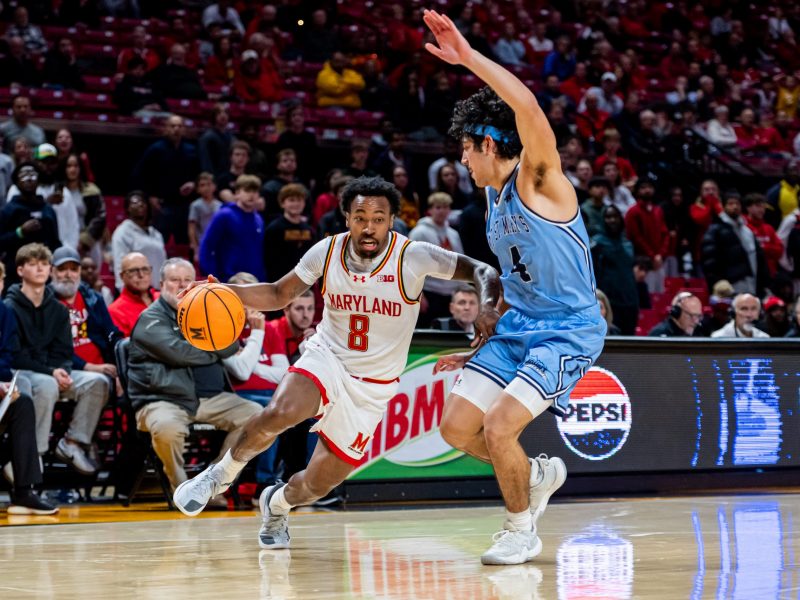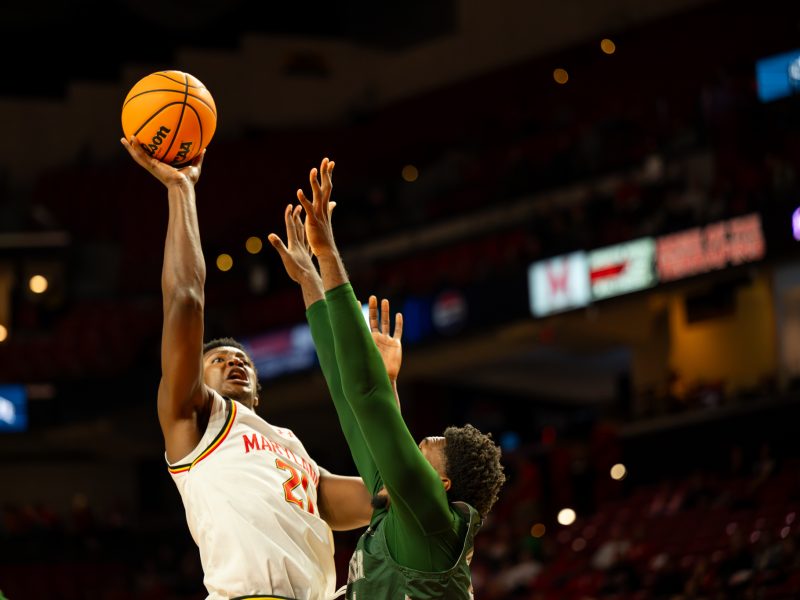WEST LAFAYETTE, INDIANA — Terrapins men’s basketball coach Mark Turgeon plopped down in his seat on the raised dais and leaned into the microphone Saturday. Minutes earlier, the No. 10 Terps had lost to No. 20 Purdue, 83-79, despite erasing a late 10-point deficit in 90 seconds.
So before Turgeon even answered a question from the pool of reporters, he addressed the root of the problem: rebounding. They had lost the game on the glass, Turgeon said in his opening statement. Shortly after the fifth-year coach finished answering questions and walked down the hallway inside Mackey Arena, center Diamond Stone emerged out of the locker room.
Unprompted, the freshman brought up rebounding, too. That’s the key moving forward, Stone said, with two regular-season games remaining.
On Saturday, the Terps were outrebounded 41-22 and surrendered 24 second-chance points. The Boilermakers shot 51.7 percent from the field and still pulled down 19 offensive rebounds. The problem surfaced at the most inopportune time, too. The Terps failed to secure a crucial defensive rebound with less than a minute left, which helped Purdue seal the win. With less than two weeks left until the Big Ten tournament, Turgeon said the players must correct the problem.
“They’ve got to fix it,” Turgeon said. “I can only do so much. You talk about it. You work on it. We run for them. We’ve got to fix it.”
With less than a minute remaining and the Terps trailing Purdue 79-77, Boilermakers guard Dakota Mathias missed a 3-pointer with the shot clock winding down.
If the Terps grabbed the board, they would’ve had a chance to tie or take their first lead of the night. Instead, the ball fell into the hands of Purdue guard Johnny Hill. Guard Rasheed Sulaimon had lost contact with Hill, who came across the paint and caught the ball when it bounced off the rim.
The Boilermakers turned that rebound into two free throws and a four-point lead with 22 seconds remaining. The Terps couldn’t recover from that missed opportunity.
“Bad box-outs here and there,” senior forward Jake Layman said. “They had a lot of tip-outs today, which led to points.”
The Terps average 3.5 more rebounds than their opponents per game, but rebounding has been their Achilles heel in defeats. In a 74-65 loss at No. 6 Michigan State on Jan. 23, the Terps were outrebounded 46-36. Wisconsin had 10 more rebounds (40-30) than the Terps in a 70-57 loss on Feb. 13.
Rebounding wasn’t expected to be an issue heading into this season. The Terps have six players 6-foot-9 or taller, including three starters. Few teams in college basketball can match their height.
Plus, with six days of rest before Purdue, the Terps worked on rebounding this week. But a Terps player didn’t secure a rebound until nearly five minutes into the game. The next time a Terp grabbed a rebound came with about 10 minutes remaining in the half.
The Terps improved slightly as the game progressed. Stone and forward Robert Carter Jr. led the team with five rebounds apiece. Four Boilermakers had six rebounds or more, though.
“We just need to emphasize in practice rebounding,” Stone said. “We just really need to take pride. I think it starts with me and Rob. If me and Rob rebound, it will just carry on throughout the guards and everyone else.”
Carter and Stone are first and second on the team, respectively, in rebounds per game this season.
After Turgeon’s opening statement Saturday, he was asked why the Terps struggled to rebound. The coach searched for an answer.
The Terps get more favorable calls at home. Purdue’s 7-foot starting center, A.J. Hammons, was great. The Boilermakers’ penetration left the Terps at a rebounding disadvantage as defenders helped off their man.
Turgeon offered up all those explanations. When he was done, though, he addressed the core problem in a short sentence.
“For the most part,” Turgeon said, “they just seemed to be more aggressive than we were.”




